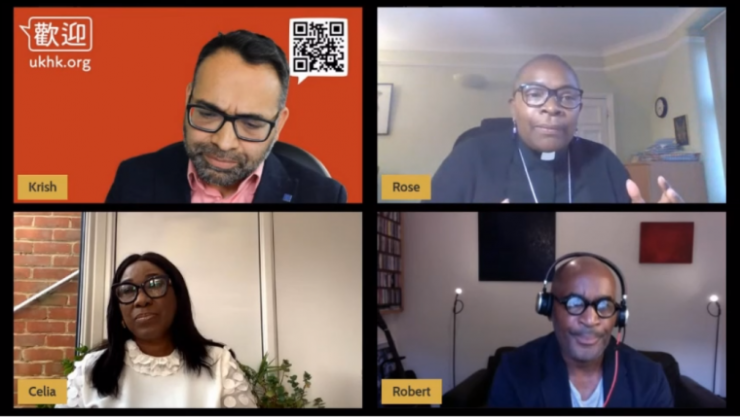
Black Christians have challenged the Church to look at its own complicity in the racism and racial injustice present in modern-day Britain.
At the Road to Racial Justice event, Christians heard the challenge to engage with the issues and respond with actions, not words.
The event, hosted by Home for Good founder Krish Kandiah and sponsored by Tearfund, was timed to coincide with the first anniversary of the death of George Floyd this week.
"It is a Christian calling to pursue racial justice because we believe in a God who loves the whole world, and if we, the Church don't love the whole world, we are a contradiction of the message we seek to proclaim," said Kandiah.
Opening the event in prayer, Pastor Agu Irukwu of the Redeemed Christian Church of God, said there was a sense of "enough is enough" after Floyd's death.
"One year on there has been progress - not as much as most of us wanted but certainly there has been progress," he said, as he called on Christians to play their part in addressing racial injustice.
During the panel discussion, Pastor Celia Apeagyei-Collins, president of the Rehoboth Foundation, said the black Church had been too silent on the issue of racism and that now was the time to speak up.
"If we keep silent, nobody's going to tell our story for us and our voices will not be heard," she said.
"As long as we keep that holy discontent going, then we can have transformation."
She continued, "[As a Church] we haven't faced up to [racism], we've kept quiet, we've swallowed it when we've been patronised, when we've been sidelined, when we've been added to things just .... so somebody can tick a box.
"We have kept silent. The time is now not to keep silent."
Other guest speakers expressed frustration at the "ignorance" surrounding racism, especially in light of comments made by theologian NT Wright in a pre-recorded interview for the event in which he suggested the problem of racism in Britain was not the same as in the US.
"There's a polarisation in America at the moment which then tends to project itself onto the rest of the world and we need to say 'no, please don't do that', because, yes, you've got major issues, we have major issues too, but they don't sit quite the same, we don't have the same history and the same shared memories, so somehow we need to have the conversation trans-nationally, trans-locally among Christian churches today," he said.
In a strong response, Robert Beckford, Professor of Black Theology at The Queen's Foundation, accused Wright of "historical amnesia" and said he had to be "on another planet" to think that the problems of racism in the US are different from the UK.
"Has he not heard of British colonialism? Does he not understand how Britain exported racism to South Africa? Has he not understood the racial terror that the Church was a part of in the West Indies? The brutality, the genocide that it was a part of in the Americas, when English people settled there?" he said.
"That's part of the problem. That's why we're in this predicament, because people teaching in institutions of higher education commit that kind of intellectual dishonesty and do not address their own complicity.
"As a black man, I'm insulted that someone would be that neglectful of the history of racialised oppression that the English have visited upon my people and upon many black and brown people on this planet."
He later said that a "white supremacist version of Christianity" continued to be a problem in today's Church.
"We just need to be honest about the data and what people have written and what the research says," he said.
The discussion was joined by the Rt Rev Rose Hudson-Wilkin, the Church of England's first female black bishop, who agreed with Prof Beckford's criticism.
"When the bishop was saying that what's happening in America is very different from here, I must admit that I was screaming inside and I will get alongside him at some point and say: my brother, no, no, no," she said.
Reflecting further, the bishop said she believed there was "a genuine ignorance" surrounding the treatment of black people in Britain today.
"There's a history to it, there's something there," she said.
"People will say 'oh why do you want to go and dig up the past?'. We have to because we have not learnt from it."
She added, "The fact of the matter is: we are ignorant to our history, the history that will tell us about the brutalisation of black people for profit.
"And so what we have coming down through the centuries is a lie, a story that says this person isn't good enough because of the colour of their skin, which then fails to tell the real story that white people, Europeans, behaved in a way that was detrimental to the human race."
NT Wright was contacted for comment.




